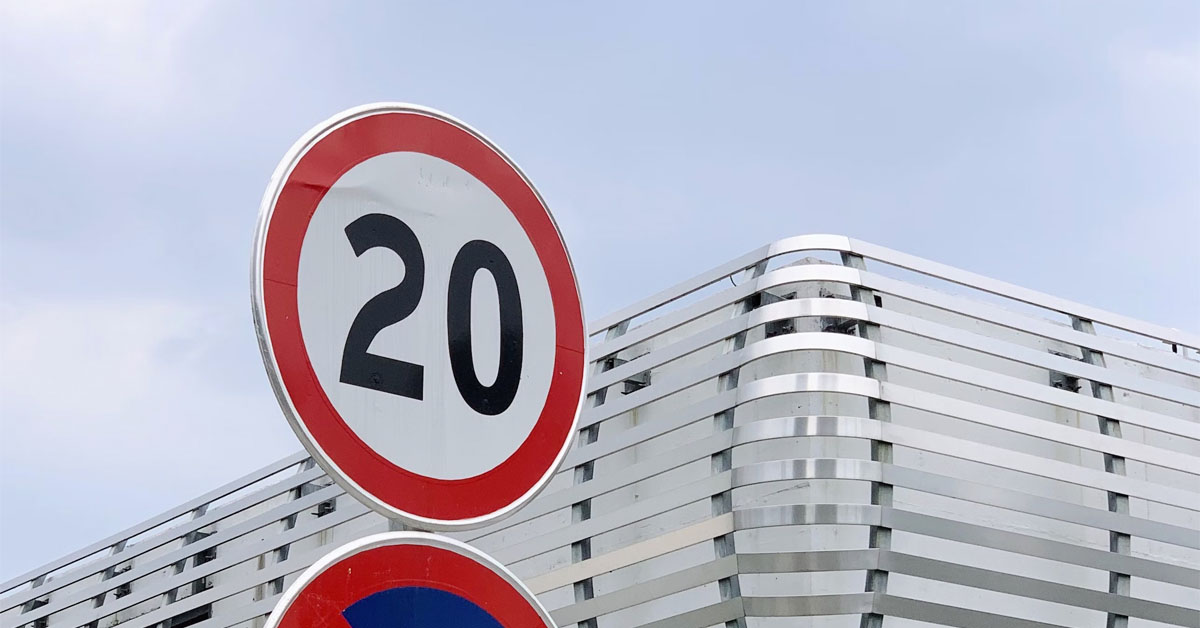Wales Introduces National 20mph Speed Limit for Urban Areas

The recent decision to lower the speed limit from 30mph to 20mph in built-up areas has sparked controversy, with public opinion leaning against the change.
The recent decision to lower the speed limit from 30mph to 20mph in built-up areas has sparked controversy, with public opinion leaning against the change, according to recent polls. However, the Welsh Government remains steadfast in its claim that this move will save approximately 10 lives annually.
Effective September 17th, Wales has officially implemented its new nationwide 20mph speed limit for restricted areas. Motorist organisations are cautioning drivers not to solely rely on their GPS devices for speed limit information.
The legislative shift entails that 20mph becomes the default speed limit in urban zones where street lights are spaced closer than 200 yards (184 meters) apart unless local authorities have sought exceptions where a 20mph limit is deemed inappropriate.
The Welsh Labour government, led by First Minister Mark Drakeford, is championing this change despite potential increases in travel times for drivers. Drakeford argues that the measure will save lives, with an estimated 10 lives spared each year in Wales.
The government believes that this new national limit for urban roads will result in fewer accidents, less noise, reduced pollution, and will encourage more people to walk and cycle.
This transition will impact approximately 7,500 miles of Wales's extensive 22,000-mile road network, necessitating the replacement of 30,000 road signs at a cost of £32.5 million.
The Welsh Labour Party contends that these expenses will be offset by NHS savings that could potentially exceed £90 million. However, Welsh Conservatives predict a substantial economic cost due to increased travel times, leading UK leader of the Commons, Penny Mordaunt, to denounce the change as "insane."
Despite these claims, the change faces significant opposition, even within Wales. Recent polls indicate that approximately two-thirds of the population are against lowering the limit from 30mph. Trials conducted in various Welsh regions before the law change reveal a modest reduction in vehicle speeds.
The percentage of cars travelling at 30-34mph decreased from 13% to 9%, while those travelling at 25-29mph decreased from 38% to 28%. Conversely, those travelling at 20-24mph increased from 34% to 39%. More serious speeders, travelling at 35mph and above, decreased from 4% to 3%.
Welsh police have announced an initial period of education for the first 12 months following the change to help drivers adapt to the new limit. In the meantime, motorists have been advised by motoring organisations, including the RAC, not to rely solely on their GPS navigation systems for up-to-date speed limit information.
Simon Williams, a spokesman for the RAC, emphasised the importance of paying full attention to road signs due to potential delays in GPS updates.
Study Casts Doubt on the Efficacy of 20mph Speed Limits
Recent research published in the Journal of Epidemiology and Community Health in 2022 challenges the notion that reducing speed limits to 20mph significantly enhances road safety.
The study examined 76 roads in central Belfast before and after the introduction of 20mph speed limits, comparing them to roads in Northern Ireland that retained 30mph or 40mph limits.
The findings suggested "no statistically significant differences" in the long-term rates of accidents and casualties or the average speed of traffic. However, roads with 20mph limits did experience less traffic, according to the research.
The study concluded that policymakers contemplating 20mph speed limits should consider the implementation's fidelity, context, and scale. RAC road safety spokesman Simon Williams expressed surprise at the findings, as they suggest that drivers on 20mph roads in Belfast hardly reduced their speeds, contrary to other reports.
Williams noted a potential compliance issue, as it was expected that even without enforcement, average speeds would decrease with lower speed limits. This research highlights the need for councils to explore alternative methods to encourage slower speeds, such as enforcement or road design modifications like traffic islands, well-designed speed humps, or chicanes.
Furthermore, the effectiveness of 20mph limits depends on their appropriateness for specific road types, with drivers less likely to comply with lower limits if they believe them to be unsuitable for the road's characteristics.
Established in 2009, Stable Vehicle Contracts is a UK-based premium vehicle leasing company. We are part of a large, privately owned, Volkswagen and Audi dealership group with over 25 sites. Stable Vehicle Contracts has the ability to offer the very best car and commercial vehicle lease deals and thanks to our partners in the trade, we've become leaders in the supply of cars and commercial vehicles through leasing.
Give us a call today at 0151 728 4711 or visit our Special Offers page to see what deals we have on. Alternatively, signup for our leasing offers newsletter to get our latest deals delivered straight to your inbox.